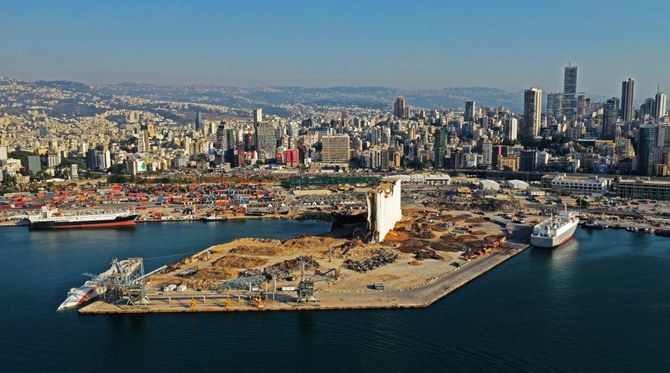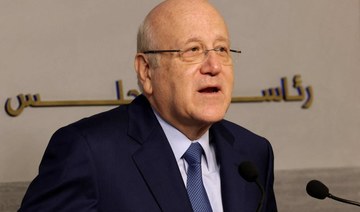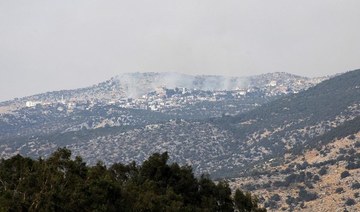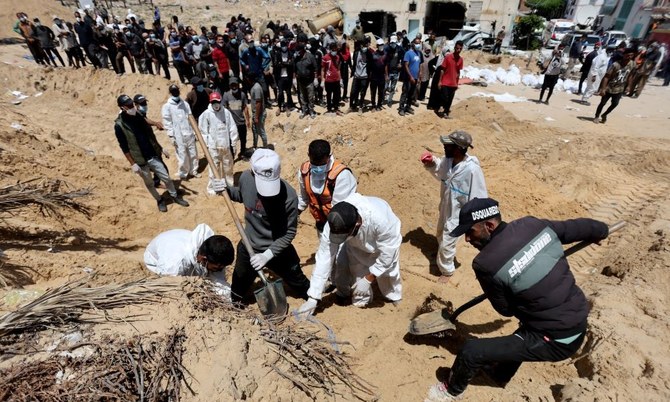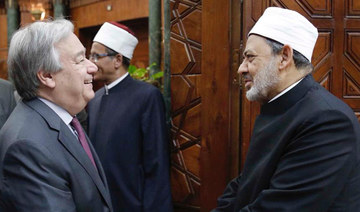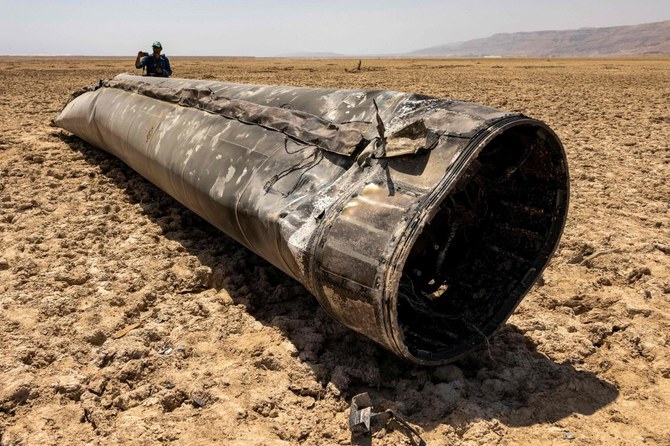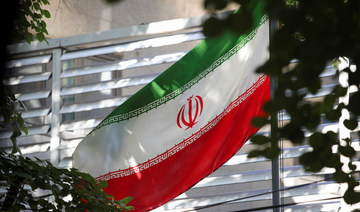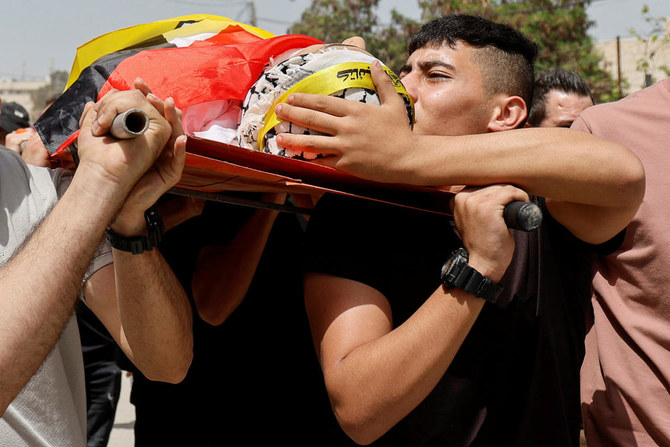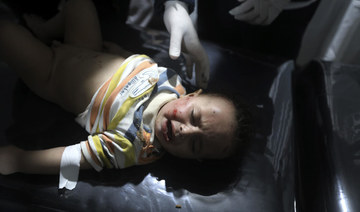BEIRUT: The judge investigating Beirut’s port explosion survived two attempts to have him removed from the inquiry when a court dismissed both complaints against him on Monday.
The Civil Court of Appeal in Lebanon did not respond to the requests submitted by MP Nohad Al-Machnouk, Ali Hassan Khalil, and Ghazi Zuaiter in an attempt to suspend the investigation by Judge Tarek Bitar.
The court, in a decision issued on Monday, obliged each of the applicants — who are also defendants in the port explosion investigation — to pay a fine of LBP 800,000 ($50).
Judge Bitar is now allowed to resume questioning the defendants, especially since their immunity has been lifted until Oct. 19, which is when the second session of Parliament starts.
Despite the court’s decision, there have been more attempts to stop Judge Bitar’s investigation. Other defendants object to his work as Hezbollah has also issued multiple threats against Bitar.
The first threat came from the party’s Secretary-General Hassan Nasrallah, who accused Bitar of being “politicized.”
The second was from the party’s security and liaison officer, Wafiq Safa, who said from the Palace of Justice that the party is very upset with Bitar and will monitor the course of his legal work. Safa also said that if Hezbollah did not like his work, he would be removed from his position.
Hezbollah also sent threats against the US, which considers the ruling party in Lebanon to be a terrorist organization.
“The Americans influence Lebanon security-wise, politically, financially, and economically,” Hashim Safi Al-Din, the head of Hezbollah’s executive council, said. “They are strong in the Lebanese state and have many (agents) within this state.”
On Sunday, Safi Al-Din escalated his tone toward the Americans.
“So far, we have not fought a battle to remove the US from the state apparatus, but if the right day comes and we engage in this battle, the Lebanese will witness something else,” he said in front of the party’s supporters.
Political analysts said that Safi Al-Din’s threats were directed at the “military establishment and the security services,” in light of the international community’s demand to deal with the party’s weapons and to keep only the state’s weapons.
“Safi Al-Din’s words are directed to the supporters of Hezbollah and not to its opponents because the forces of the current authority in the country do not need to be threatened,” Harith Suleiman, an academic researcher, told Arab News.
“They are already submissive to the party and do not need anyone to terrorize them.”
Suleiman said a clear example of this is when Lebanese Prime Minister Najib Mikati absolved Hezbollah of bringing trucks loaded with Iranian fuel into Lebanon last month.
“When Wafiq Safa threatened Judge Bitar in the Palace of Justice, did the minister of justice dare to speak against him and say that what (Safa) said was unacceptable? Did the Supreme Judicial Council object to the statement of the Hezbollah official?” Suleiman asked.
“The possibility of Hezbollah targeting the Lebanese army is possible because the army’s leadership might bother it.”
Said Suleiman: “Hezbollah is not concerned about its political critics, nor by anyone who talks about an Iranian occupation. On the contrary, this talk benefits Hezbollah because it can tell its audience that the others are targeting Shiites and that they have no choice but to support the party.”
In his speech on Sunday, Safi Al-Din boasted that Hezbollah had become “an essential part of the regional equation, and Lebanon must position itself when the situation in the region changes.”
Suleiman said that any settlement in the region will not be at the expense of Hezbollah and there is no change in the balance of power in the region.
“We may be heading toward a late nuclear agreement, but there is no American escalation in the region,” he said. “In return, there is no Iranian escalation in the region. We will be in a status quo.”
Former Lebanese Interior Minister Ahmed Fatfat considered Safi Al-Din’s words as a continuation of what Hezbollah has been doing for years.
“Hezbollah accuses all those who disagree with it of treason, while it admits that it receives its orders and money from Iran,” Fatfat told Arab News.
“Is this not a betrayal of the constitution and the homeland? I think that Hezbollah is reeling politically. It indeed has a strategic project, but the party in Lebanon is turning to the logic of a single party in the country. This logic means Iranian occupation.”
Fatfat said Hezbollah is trying to change the entire political and economic environment by importing fuel from Iran.
“Unless a real national front is established to confront the party, the country will fall under Iranian occupation,” Fatfat said. “The forces that believe in sovereignty are currently scattered, and every party is trying to get part of the authority.”
Regarding Safi Al-Din’s statement that Hezbollah has become part of the regional equation, Fatfat said the bullying language Hezbollah uses in public indicates that the party is afraid of the developments taking place.
“They may be at its expense in the ongoing international negotiations with the Iranian side,” he said. “Hezbollah is trying to assert that it controls the decision and must be reckoned with.”



